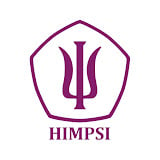COPING SELF-EFFICACY, PERFECTIONISM, AND BURNOUT AMONG UNIVERSITY STUDENTS DURING COVID-19 PANDEMIC
Abstract
Keywords
Full Text:
PDFReferences
Ahn, D., & Kim, O. (2006). Perfectionism, Achievement Goals, and Academic Efficacy in Medical Students. Korean Journal of Medical Education, 18(2), 141–152. https://doi.org/10.3946/kjme.2006.18.2.141
Anwar, N., & Wardani, L. M. I. (2021). Career Competencies for Millennials. NEM. Saleem, A. (2011). Self-efficacy as a stress-coping mechanism among teachers: A critical literature review. African Journal of Business Management, 5(35). https://doi.org/10.5897/ajbmx11.023
Atika, S., & Wardani, L. M. I. (2021). Core Self Evaluation and Coping Stress. NEM.
Dunkley, D. M., Zuroff, D. C., & Blankstein, K. R. (2003). Self-critical perfectionism and daily affect: Dispositional and situational influences on stress and coping. Journal of Personality and Social Psychology, 84(1), 234–252. https://doi.org/10.1037/0022- 3514.84.1.234
Fye, H. J., Gnilka, P. B., & McLaulin, S. E. (2018). Perfectionism and School Counselors: Differences in Stress, Coping, and Burnout. Journal of Counseling & Development, 96(4), 349–360. https://doi.org/10.1002/jcad.12218
Godoy, D., Godoy, J. F., López-Chicheri, I., Martínez, A., Gutiérrez, S., & Vázquez, L. (2008). Psychometric properties of the Coping with stress Self Efficacy Scale. Psicothema, 20(1), 155-165
Hill, A. P., & Curran, T. (2015). Multidimensional Perfectionism and Burnout. Personality and Social Psychology Review, 20 (3),269288.https://doi.org/10.1177/1088868315596286
Hulin, C., Netemeyer, R., and Cudeck, R. (2001). Can a Reliability Coefficient Be Too High? Journal of Consumer Psychology, Vol. 10, Nr.1, 55-58.
Luo, Y., Wang, Z., Zhang, H., Chen, A., & Quan, S. (2016). The effect of perfectionism on school burnout among adolescence: The mediator of self-esteem and coping style. Personality and Individual Differences, 88, 202-208.https://doi.org/10.1016/j.paid.2015.08.056
Moate, R. M., Gnilka, P. B., West, E. M., & Bruns, K. L. (2016). Stress and Burnout Among Counselor Educators: Differences Between Adaptive Perfectionists, Maladaptive Perfectionists, and Non perfectionists. Journal of Counseling & Development, 94(2), 161–171. https://doi.org/10.1002/jcad.12073
Schaufeli, W. B., Martínez, I. M., Pinto, A. M., Salanova, M., & Bakker, A. B. (2002). Burnout and Engagement in University Students. Journal of Cross-Cultural Psychology,33(5),464–481. https://doi.org/10.1177/0022022102033005003
Shafran, R., Cooper, Z., & Fairburn, C. G. (2002). Clinical perfectionism: a cognitive– behavioral analysis. Behaviour Research and Therapy, 40(7), 773–791. https://doi.org/10.1016/s0005-7967(01)00059-6
Stoeber, J., & Rennert, D. (2007). Perfectionism in school teachers: Relations with stress appraisals, coping styles, and burnout. Anxiety, Stress, & Coping,21(1), 37– 53. https://doi.org/10.1080/10615800701742461
Swider, B. W., & Zimmerman, R. D. (2010). Born to burnout: A meta-analytic path model of personality, job burnout, and work outcomes. Journal of Vocational Behavior, 76(3), 487–506. https://doi.org/10.1016/j.jvb.2010.01.003
Tosevski, D. L., Milovancevic, M. P., & Gajic, S. D. (2010). Personality and psychopathology university students. Current Opinion in Psychiatry, 23(1), 48– 52. https://doi.org/10.1097/yco.0b013e328333d625
Wardani, L. M. I., & Amalia, W. N. (2021). Psychological Capital, Job Insecurity, dan Burnout. Penerbit NEM.
Wardani, L. M. I., & Firmansyah, R. (2019). The work-life balance of blue-collar workers: The role of employee engagement and burnout. Jurnal Psikologi Ulayat, 6(2), 227-241. DOI: 10.24854/jpu02019-238
Wardani, L. M. I., & Firmansyah, R. (2021). Work-life Balance Para Pekerja Buruh. NEM.
Wardani, L. M. I., & Hapsari, S. A. (2022). Religiosity, Burnout, dan Work-Family Conflict Pada Tenaga Kesehatan. NEM.
Wardani, L. M. I., & Pitensah, C. N. (2021). Religiosity, Psychological Capital, dan Burnout Pada Mahasiswa Bekerja. Penerbit NEM.
Wardani, L. M. I., Depati, M. C. R., Sombuling, A., & Risnawati, E. (2022). Active coping style and pharmacist’s burnout during pandemic covid-19: Core self-evaluation as a mediator. International Journal of Health Sciences, 6(3), 1283-1296. Doi: 10.53730/ijhs.v6n3.12107.
Wardani, L. M. I., Jeanne, Y., Mardhiyah, M., Komarudin, A., Istiqomah, & Rozi, F. (2021). Core self-evaluation as a mediator for social support and psychological well-being: A study of Indonesian migrant domestic worker candidates. Kasetsart Journal of Social Sciences, 42, 637-644. Doi: 10.34044/j.kjss.2021.42.3.27
Wardani, L. M. I., Wulandari, S., Triasti, P., & Sombuling, A. (2020). The Effect of Psychological Capital on Work Engagement: Employee Well-Being as a Mediator. Test Engineering & Management, 83, 17220-17229.
Wilkerson, K. (2009). An Examination of Burnout Among School Counselors Guided by Stress- Strain-Coping Theory. Journal of Counseling & Development, 87(4), 428–437. https://doi.org/10.1002/j.1556-6678.2009.tb00127.x
DOI: http://dx.doi.org/10.22441/biopsikososial.v6i2.16943
Refbacks
- There are currently no refbacks.
Copyright (c) 2022 Biopsikososial: Jurnal Ilmiah Psikologi Fakultas Psikologi Universitas Mercubuana Jakarta
JBUMBand its articles is licensed under a Creative Commons Attribution-ShareAlike 4.0 International License.
Tim Editorial Office
JBUMB
Fakultas Psikologi, Universitas Mercu Buana
Jalan Meruya Selatan No. 1, Kembangan, Jakarta Barat, 11650, Indonesia
Phone: +6281318855243
Email: [email protected]
Website: https://publikasi.mercubuana.ac.id/index.php/biopsikososial/index

















